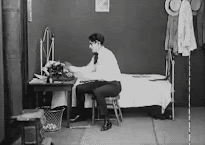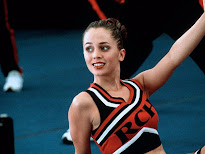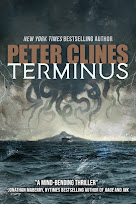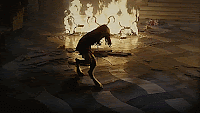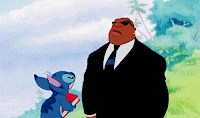This is one of those posts some folks may feel the need to argue with. It’s a writing tip that’s going to feel obvious to some of you, and ridiculous to others, but I truly think a writer needs to follow if they want any measure of success. And when I say “success” I refer to the classic definition—“making money off your material.”
If I want that kind of success, my hero has to win.
Fair warning, there’s going to be a couple spoilers coming up. Kind of necessary if we’re going to talk about how things end for a character in a story. They’re for pretty big things I’m sure most everyone already knows the ending of, but there’s the warning just in case. If you’re way behind in your required reading or viewing, you may want to stop here.
Also, I’m using hero in the gender-blind sense. If it makes you feel better, feel free to swap in heroine or protagonist. I’m not against any of these terms or the characters they attach to, I’m just using hero because it’s short, and quick and I’m trying to stay focused on this instead of everything going on in the world. So for this post, I’m just talking about the hero.
And the hero wins.
Pretty much always.
Now, there’s a belief in some circles that having the hero of the story fail and die somehow improves the story. That it’s more dramatic. It’s the belief that having something depressing and random happen to my hero is more “honest” because life is often depressing and random. I think this ties back to the frequently-waved buzzwords realism and art. Art imitates life, so if I’m imitating life, I must be making art. That’s just logic. Right?
As I’ve mentioned once or thrice before, this kind of ending sucks. It sucks because we all inherently know the hero is supposed to win, since we identify with the hero. If the hero loses, it means we lost. We’re losers, identifying with another loser.
Believe it or not, this sort of statement doesn’t go over well with most people. I mean (as we’re currently seeing in the real world) people have a lot of trouble dealing with it when a character they’ve invested so much of themselves in doesn’t win.
Now, before people start scribbling down below (for any reason, although I’m sure at least one person already has), let me finish.
 I’m not saying every book has to end with happy smiles and people rolling around on piles of money in their new twelve-bedroom mansion. My hero doesn’t need to defeat the cyborg werewolves, save the world, and fly off into the sunset with nymphomaniac heiress Margot Robbie in her private jet.
I’m not saying every book has to end with happy smiles and people rolling around on piles of money in their new twelve-bedroom mansion. My hero doesn’t need to defeat the cyborg werewolves, save the world, and fly off into the sunset with nymphomaniac heiress Margot Robbie in her private jet.
Truth is, the hero doesn’t necessarily need to enjoy winning. I just said they need to win. They may be damaged physically, emotionally, or both. In fact, if my hero ends up wounded or broken after all they’ve done, it just makes us identify with them a little more, doesn’t it?
When they win like this, we often call it a pyrrhic victory. Maybe our hero solves the murder mystery, but loses their best friends in the process. She got revenge, but her lover’s still dead and now she’s a wanted criminal herself. He won the contest, but now his family’s humiliated and wants nothing to do with him. The team tried to save all the hostages but only half of them got out alive. As I mentioned above, victory isn’t an all-or-nothing thing, and my hero can still have a pile of losses even though they’ve succeeded in their main goals. A partial win is still a win.
 Hell, the hero doesn’t even need to survive the story in order to win. There are plenty of characters in books and film who didn’t live to enjoy their victories. At the end of Rogue One (here’s that spoiler alert) our two surviving heroes are literally incinerated in the blast from the Death Star’s test firing. And note I say surviving heroes. The rest of their team has already suffered a series of brutal and violent ends. Nobody gets out of that movie. Same with Tony Stark in Avengers: Endgame, cooked from the inside with a single snap of his fingers.
Hell, the hero doesn’t even need to survive the story in order to win. There are plenty of characters in books and film who didn’t live to enjoy their victories. At the end of Rogue One (here’s that spoiler alert) our two surviving heroes are literally incinerated in the blast from the Death Star’s test firing. And note I say surviving heroes. The rest of their team has already suffered a series of brutal and violent ends. Nobody gets out of that movie. Same with Tony Stark in Avengers: Endgame, cooked from the inside with a single snap of his fingers.
And yet, in both of these examples, the heroes win. No question about it. Anyone who’s seen these stories will tell you the good guys won and the bad guys lost.
A key thing here is my character’s motive. What are they trying to do? Keep in mind, their stated goals and their actual goals might not always be the same. Phoebe may say she wants to date the head cheerleader, but what she’s really looking for is romantic love and companionship. Wakko may say he wants revenge, but what he really wants is justice. So they may fail at that obvious, stated goal (dating the cheerleader) or even a broader, more universal goal (keeping their left leg attached), but still succeed with their actual, motivating goal.
Now, I want to mention one other thing, because my friend Stephen Blackmoore brought it up when I mentioned this theory of winning at the Writers Coffeehouse once. There are some stories (a lot in the noir genre, for example) where the hero doesn’t win. In fact, in some cases they fail completely, on all levels, and end up much worse off than they began. This can absolutely happen in stories. Great stories, some of which get a lot of praise and awards.
But…
I think if we named some stories where the hero fails in this complete way, we’d probably realize… they’re not all that well-known. And they’re probably read even less. Again, not saying they’re bad, but it is a much smaller niche of potential readers who’ll enjoy a story where the hero, well, doesn’t really accomplish anything. Even if it’s beautifully written. So there’s nothing wrong if those are the stories I want to write, but I should have my eyes open about how wide an appeal they’re going to have.
 Y’see, Timmy… we encounter enough failure and losing in real life that most folks aren’t going to also enjoy it as entertainment. We want to see victories and success and heroic sacrifice because these are the things we dream of in our own lives, and we relate to those people because they’re the kind of people we wish we could be. Even if just for a little while.
Y’see, Timmy… we encounter enough failure and losing in real life that most folks aren’t going to also enjoy it as entertainment. We want to see victories and success and heroic sacrifice because these are the things we dream of in our own lives, and we relate to those people because they’re the kind of people we wish we could be. Even if just for a little while.
So if I’m my plot ends with a massive failure or my hero dies for no reason… maybe it’s worth rethinking that.
Especially if I want to win.
Next time, I’d like to talk about Flashdance.
Until then, go write.



